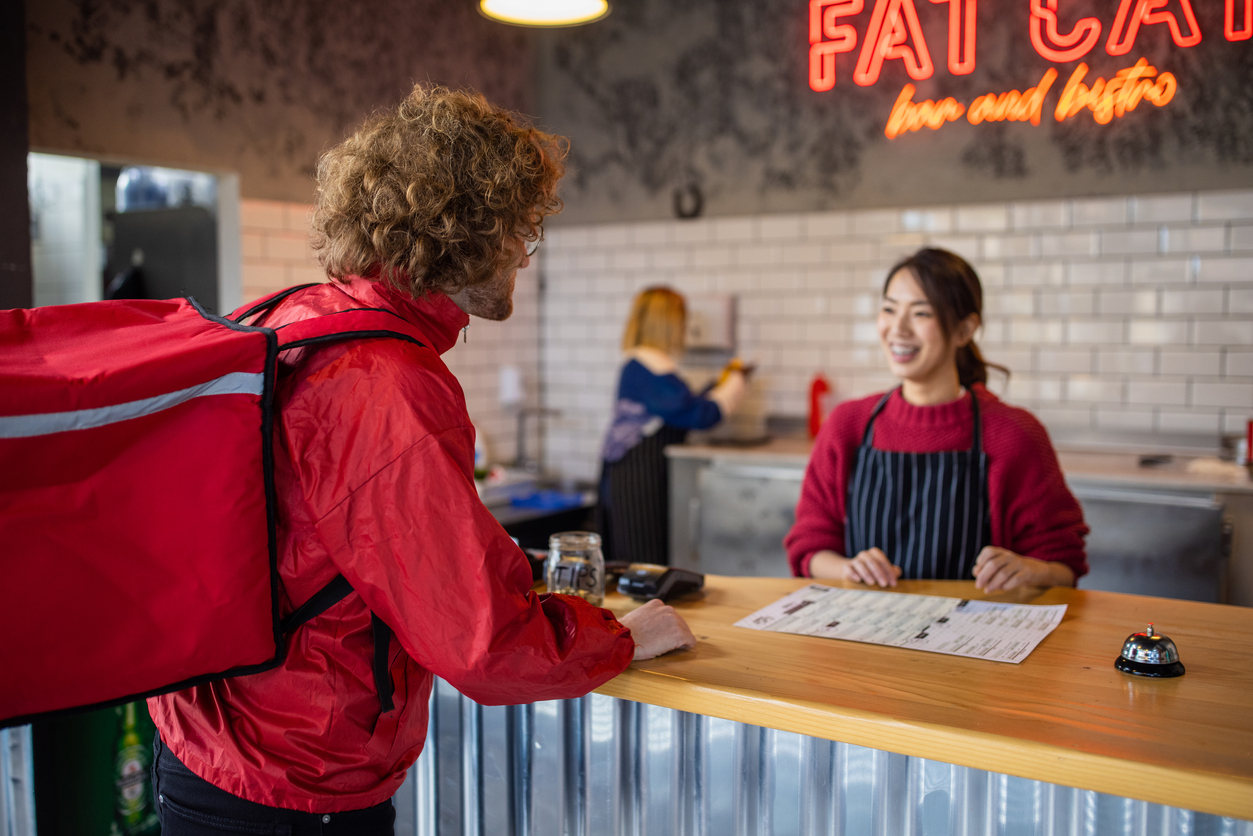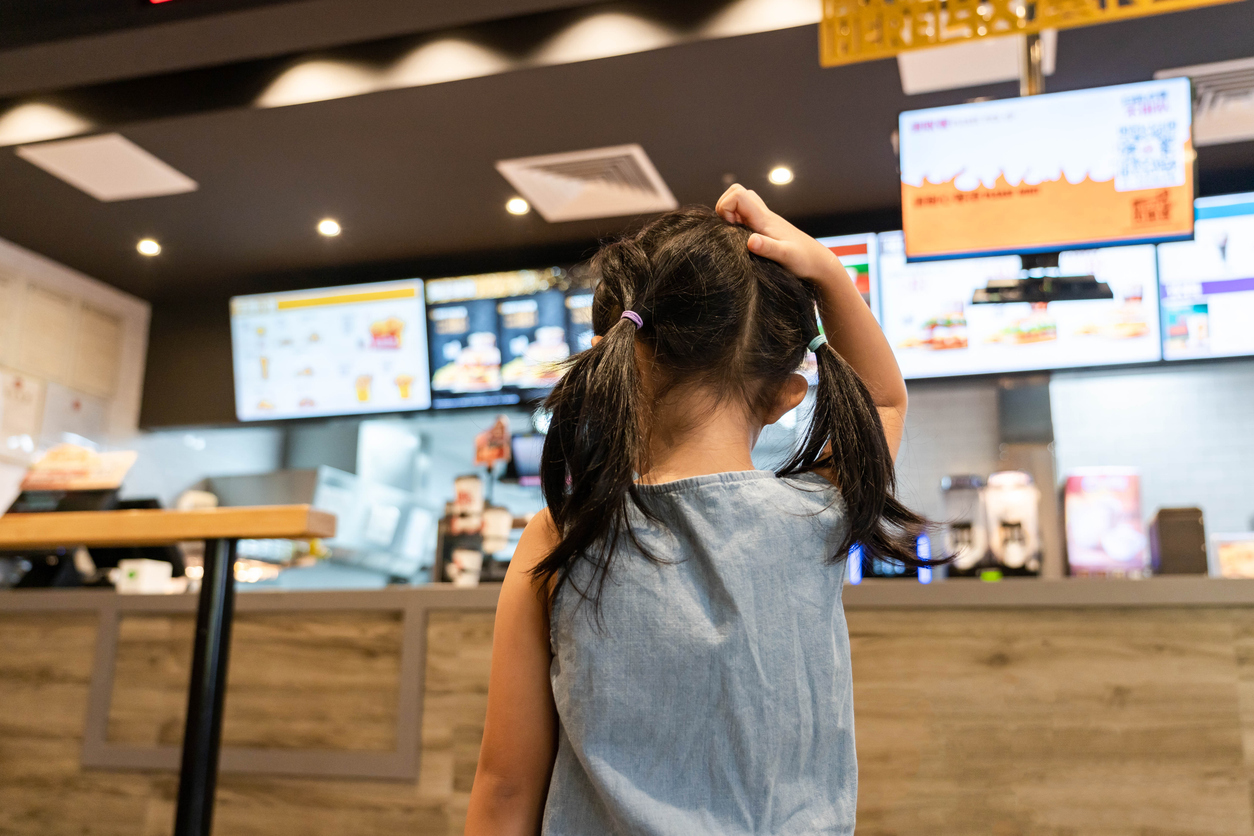On-demand delivery allows customers to receive food almost immediately after placing an order. This service has gained immense popularity in the restaurant sector as it meets the demand for speed and convenience. Customers appreciate to enjoy their favorite meals without the hassle of cooking or any dining. This focus on quick service enhances customer satisfaction and helps restaurants reach a wider audience.
Understanding how on-demand delivery works, its benefits, and the associated costs is crucial for customers and restaurant owners. Explore these aspects and see how on-demand delivery can enhance your dining experience.
What Is On-Demand Delivery?
On-demand delivery gives customers fast access to goods and services, prioritizing speed, convenience, and satisfaction. This model has become essential for businesses, especially restaurants, as consumers increasingly expect immediate delivery of their favorite meals.
Food delivery apps like Uber Eats, DoorDash, and Grubhub exemplify on-demand delivery. Customers can easily browse menus, place orders, and receive their food right at their doorstep, all within a short time frame. This service meets the growing demand for convenience and allows restaurants to expand their reach and boost sales.
As more people embrace the convenience of on-demand delivery, it has become a key component of modern restaurant models, helping businesses stay competitive in a fast-paced market. By adopting this approach, restaurants can enhance customer experiences and drive loyalty.
How Does On-Demand Delivery Work?
On-demand delivery allows customers to place food orders online or through mobile apps. Once an order is placed, the system uses real-time matching to connect available drivers with the orders, ensuring quick service.
Algorithms are crucial in optimizing delivery routes, helping drivers navigate efficiently and reach their destinations faster. This technology minimizes customer wait times and maximizes the number of orders drivers can handle in a given period. Everyday use cases for on-demand delivery include food delivery, groceries, and household items.
This service offers incredible convenience and efficiency, making it easy for customers to enjoy their favorite meals without leaving home. For restaurants, on-demand delivery enhances their reach, enabling them to serve more customers and increase sales while providing a seamless experience for diners who value speed and convenience.
Advantages Of On-Demand Delivery
Adopting on-demand delivery services offers significant advantages for restaurants. These services expand a restaurant's reach, provide insights into customer behavior, and foster loyalty while cutting operational costs. By embracing delivery, restaurants can better serve their customers and boost their profitability.
A Bigger Clientele
On-demand delivery allows restaurants to reach customers beyond their physical locations, attracting more diners, including those who may not visit in person. Busy professionals, families, and individuals seeking convenience become part of a restaurant's clientele. This expansion helps balance big clients versus small clients, enabling restaurants to increase delivery sales and capitalize on a larger market share, which can significantly boost their overall revenue.
Offer Affordable Prices
By providing on-demand delivery, restaurants can remain competitive while offering reasonably priced menu options. With delivery services, there is less need for extensive dine-in space, leading to savings on rent and overhead costs. These savings can then be passed on to customers, making the restaurant's offerings more attractive and accessible. Affordable prices encourage repeat orders, ultimately driving sales and fostering a loyal customer base.
Recognize Demand Trends And Customer Behaviour
Delivery platforms provide valuable data insights into customer preferences, peak ordering times, and popular menu items. By exploring customer behavior, restaurants can optimize their menu offerings and adapt to changing tastes. Understanding these trends helps restaurants make informed decisions, like introducing new items or adjusting prices, ultimately improving customer satisfaction and increasing sales.
Increase Client Loyalty
Convenient and consistent delivery services enhance customer loyalty. Restaurants can strengthen relationships by offering rewards or discounts to repeat delivery customers. These incentives encourage diners to return, increasing customer loyalty and boosting overall sales. By prioritizing delivery and rewarding loyal customers, restaurants can create a positive experience that keeps diners returning for more.
Cut Expenses Associated With Infrastructure
The rise of delivery services allows restaurants to refrain from investing heavily in large dining areas or extensive on-site staff. By focusing on delivery, restaurants can significantly cut costs related to maintaining physical infrastructure while still serving a broad customer base. This approach enables them to allocate resources more efficiently, ultimately improving profitability.
Lessen Reliance On Manual Labor
On-demand delivery services help automate many aspects of order processing and delivery, reducing the need for a large staff. Technology and third-party platforms can handle much of the manual work, allowing restaurants to operate more efficiently. This automation frees up staff to focus on other vital tasks, ultimately enhancing the overall customer experience while reducing labor costs.
How To Offer On-Demand Delivery In Restaurants?
On-demand delivery has become essential for restaurants, greatly influencing customer satisfaction and revenue. Providing a seamless and efficient delivery experience enhances customer convenience and encourages repeat business, ultimately boosting a restaurant’s success in a competitive market.
Prepare Your Menu And Optimize Packaging
Restaurants must adapt their menus to ensure food travels well, which is crucial for maintaining quality during delivery. Choose dishes that hold up during transport, avoiding items that may become soggy or cold. Optimizing packaging is crucial in preserving temperature and presentation, ensuring that customers receive their meals in excellent condition. Use insulated containers, secure lids, and eco-friendly materials to enhance the delivery experience and reinforce your brand's commitment to quality.
Set Delivery Areas
Deciding on delivery areas is essential for maximizing efficiency and revenue. Restaurants can determine a delivery radius based on their location and potential demand. Utilize data analytics and insights from delivery services to identify the most profitable zones. Focus on areas with a higher concentration of potential customers while ensuring that delivery times remain reasonable. This approach helps optimize operational efficiency and enhances customer satisfaction by reducing wait times.
Choose A Reliable Delivery Service Provider
Selecting the right delivery service is crucial for a successful on-demand delivery operation. Consider either partnering with a third-party delivery service or developing an in-house system. Look for criteria like delivery speed, cost-effectiveness, and integration capabilities with your restaurant's POS system. A reliable partner enhances the customer experience, ensuring timely deliveries and accurate order fulfillment. Thorough research and comparisons will help you find a provider that meets your restaurant's needs.
Create An Online Ordering System
A smooth online ordering experience is vital for customer satisfaction. Invest in a user-friendly website or app that allows customers to place orders quickly. Incorporate features like order tracking and multiple payment options to enhance convenience. Your online ordering system should also accurately reflect your menu, showcasing enticing images and descriptions. An efficient system encourages repeat orders and fosters customer loyalty, making it easier for diners to enjoy their favorite meals.
Choose A Pricing Strategy
Determining delivery fees requires careful consideration to balance profitability with competitiveness. Restaurants can opt for a flat rate or charge based on distance, depending on their operational costs—research local competitors to understand standard pricing in your area and adjust accordingly. A thoughtful pricing strategy that reflects delivery costs and market rates ensures that you remain attractive to customers while covering your expenses and generating revenue.
Train Staff
Training your staff for the on-demand delivery process is essential for a seamless experience. Focus on customer service skills, including communication and problem-solving. Ensure staff understands delivery logistics, such as proper packing techniques and route planning. Manage online orders effectively by familiarizing staff with the ordering system and handling any issues. A well-trained team enhances delivery, increasing customer satisfaction and repeat business.
Restaurants On-Demand Delivery Services Cost
The rise of on-demand delivery services has transformed how restaurants operate, making it crucial for owners to understand the associated costs. Knowing these expenses helps restaurant owners make informed decisions about incorporating delivery into their business models.
Various costs come into play, including commission fees charged by delivery platforms, delivery fees that may vary based on distance, and service fees that contribute to overall expenses. These costs can significantly impact profit margins, potentially reducing earnings per order. Therefore, restaurant owners must carefully evaluate these expenses and adjust menu prices or delivery strategies to maintain profitability.
By understanding and managing these costs, restaurants can ensure that offering on-demand delivery remains viable and beneficial for their business while continuing to satisfy customer demand for convenience.
Optimize Your Delivery Services With Checkmate
On-demand delivery has transformed restaurant businesses by enhancing customer satisfaction and expanding market reach. By embracing this service, restaurants can attract more patrons and streamline operations. To optimize your delivery services further and fully harness these advantages, partner with us. Let us help you elevate your delivery experience and achieve tremendous success in today’s competitive market!





